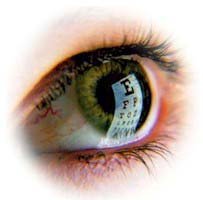Routine Examination is the Key
IN ORDER TO HAVE A HEALTHY LIFE, you must regularly participate in the prevention of disease. At the very least, get appropriate screenings, early diagnosis, and treatment. Routine health checkups are important for quality health care. Regular exams and screenings can help save lives. They help find problems that can be treated early.
Many disorders do not produce obvious symptoms until the disease is well advanced. I am a handicap by the same reason! This type of disease can usually be effectively treated if it is identified at an early stage. Early treatment can help prevent more serious problems.
The value of checkups and how often one must get them done depends mainly on age and sex. Personal and family medical histories are also important. There are certain routine checkups that every individual must get done for a healthy life.
Routine health check-up for women
1. Blood pressure check
2. Height and weight measurement
3. Brief physical examination including a pelvic examination to screen for cancers of the thyroid, lymph nodes, ovaries, and skin.
4. Stool sample checked for blood
5. Vision and glaucoma check.
6. Breast examination for breast cancer
7. Pap smear until three normal ones and if still with the same sexual partner and subsequently one Pap smear every 3 years, unless there is change in partners or there is an abnormal Pap smear
8. Dental examination for cleaning and check-up.
9. If 40 to 49 years old a mammogram is important
10. Dental examination for cleaning and check-up
11. A breast X-ray (Mammogram) if 50 years old or older.
12. Lipid profile
13. Blood sugar level check
14. Sigmoidoscopy or colonoscopy after age 50 to screen for colon cancer.
Routine health check-up for men
1. Blood pressure check
2. Height and weight measurement
3. Dental examination for cleaning and check-up.
4. Vision check
5. Physical examination to screen for cancers of lymph nodes, prostate, and rectum (this may include a Prostate Specific Antigen, PSA, blood test for prostate cancer)
6. Brief physical examination to screen for cancers of the thyroid, lymph nodes, skin, and testicles
7. Height and weight measurement
8. Blood pressure check
9. Lipid profile
10. Stool sample checked for blood
11. Vision and glaucoma check
12. Heart check-up
13. Blood sugar level check
14. Sigmoidoscopy or colonoscopy after 50 years to screen for cancer of large intestines.
Other health care problems of concern
Ways to stay healthy include:
Diet and exercise: Maintain an appropriate body weight. Limit fat and cholesterol in your diet. Include a lot of grains, fruits, and vegetables in your diet. Be regular in exercising.
Injury prevention: Use seat belts while driving and helmets while on two-wheelers. Try to prevent falls.
Dental health: Visit the dentist regularly. Floss and brush your teeth with fluoride toothpaste daily.
Sexual behavior: Prevent sexually transmitted diseases by avoiding high-risk sexual behaviour and use condoms.
Substance use: Avoid tobacco, alcohol and drugs




No comments:
Post a Comment